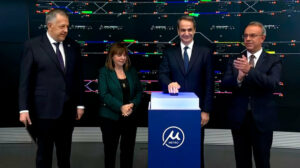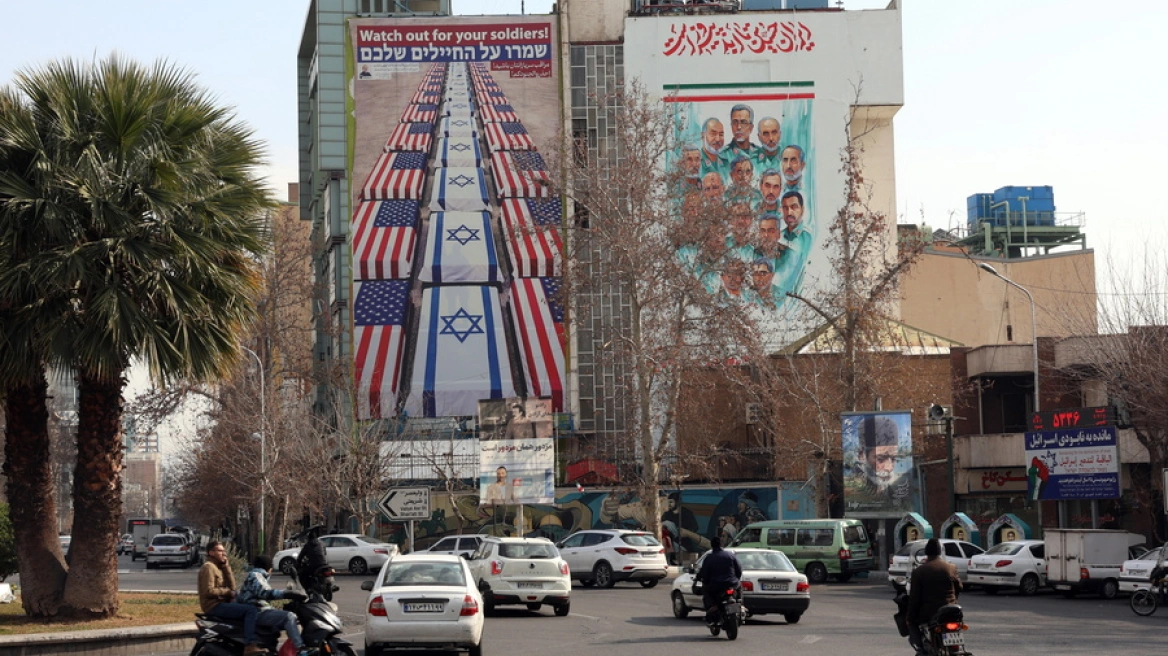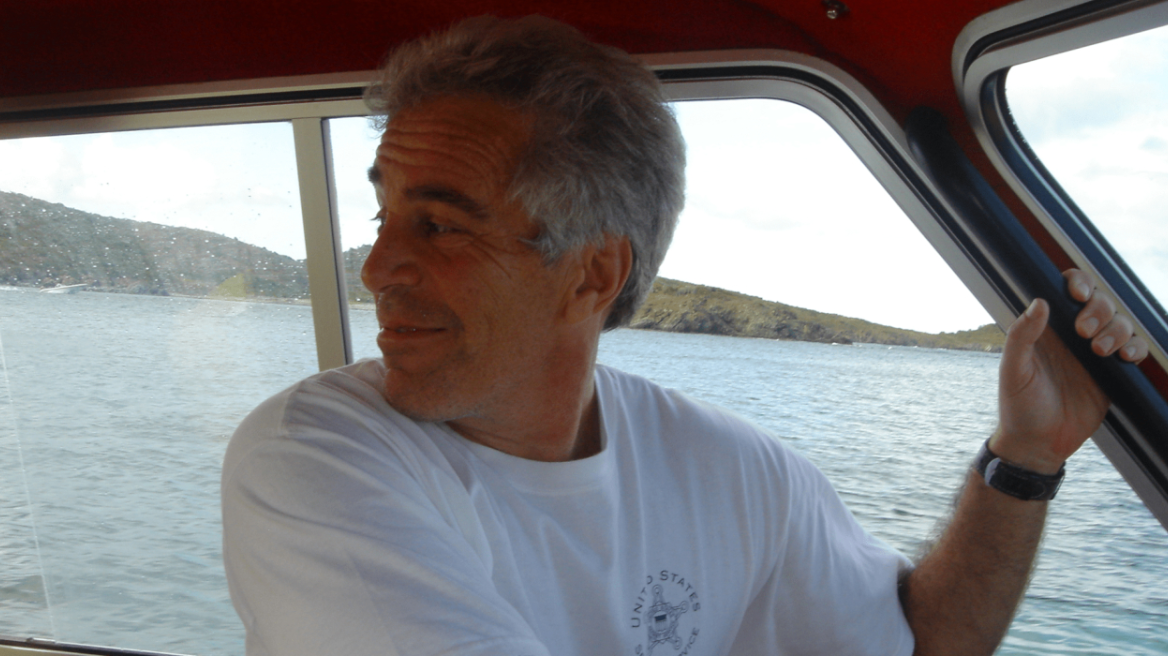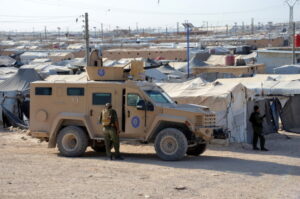Thessaloniki’s transportation system entered a new era as the Thessaloniki Metro was officially inaugurated. The handover ceremony took place at the Pylaia depot, where Prime Minister Kyriakos Mitsotakis pressed the button at 1:29 PM on Saturday, marking a historic moment for the city.
With the push of the button, the barriers at all 13 metro stations began to open, allowing the public to board. Following this, the Prime Minister and the President of the Hellenic Republic boarded the first train, traveling to Papafi station.
The handover of the project by the Prime Minister took place at the Pylaia depot, which also houses the state-of-the-art control center ensuring the system’s safe operation.
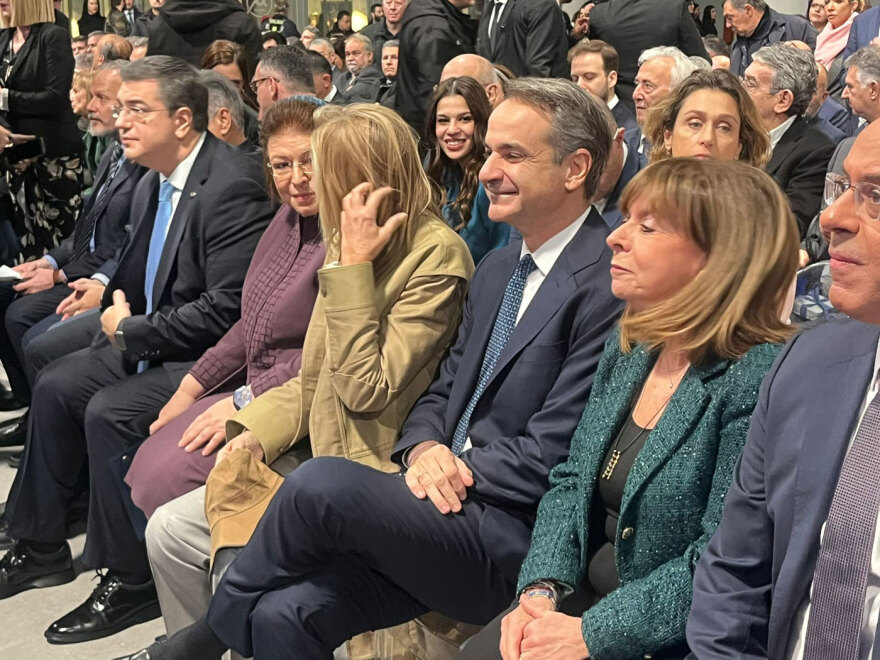
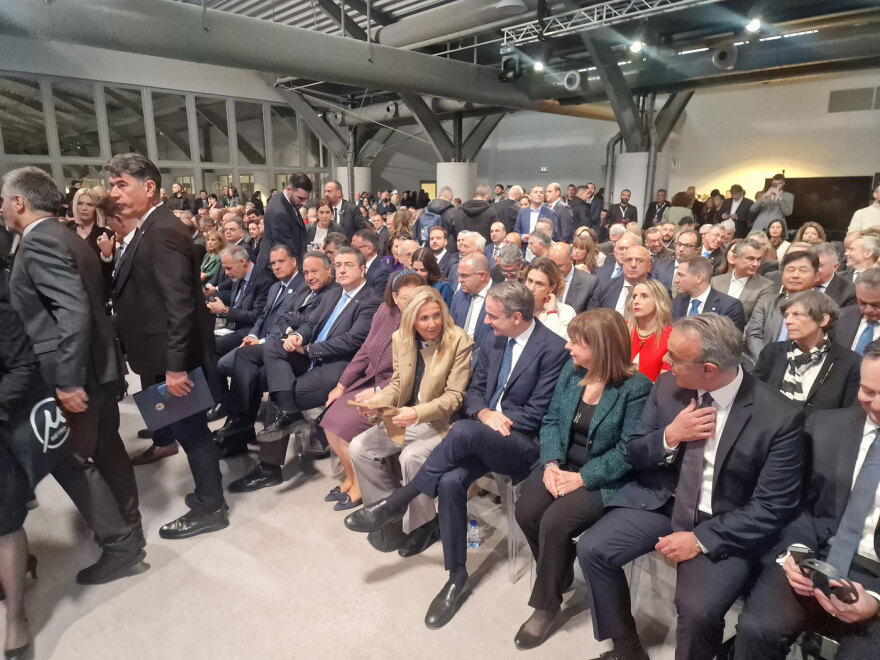
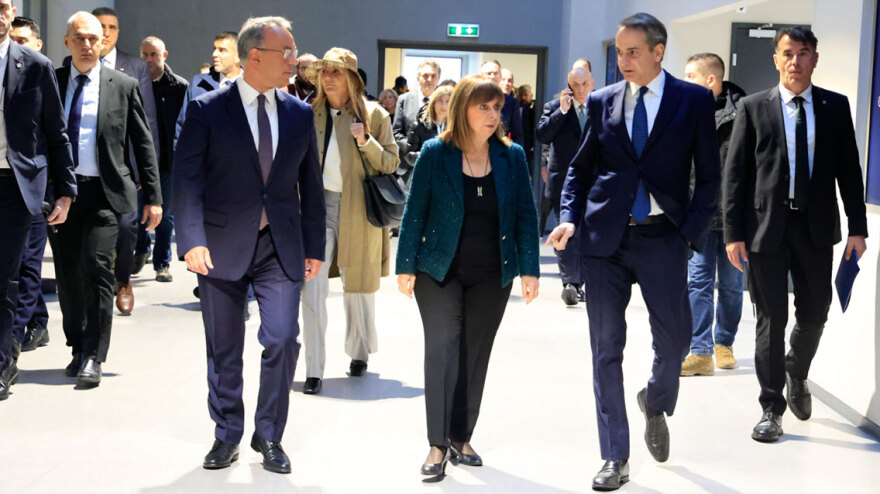
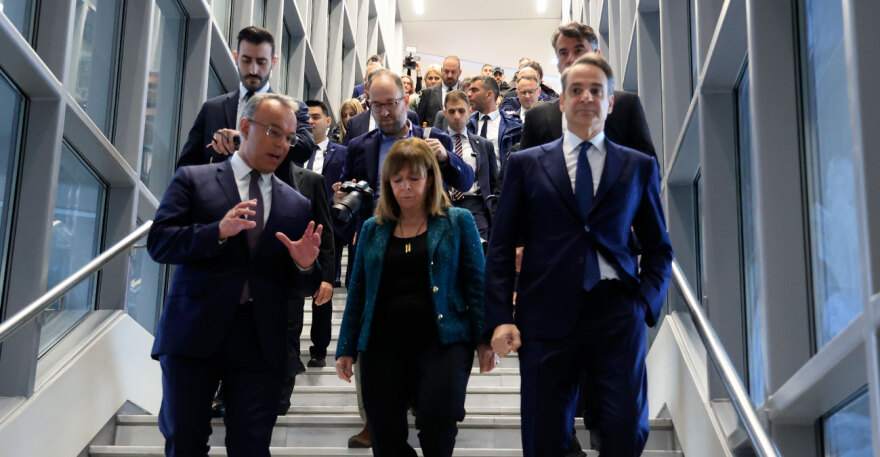
The ceremony began with a blessing shortly after 12 noon, following the arrival of the Prime Minister and the President of the Republic. The first to take the podium was the CEO of Hellenic Metro S.A., Nikos Kouretas, who thanked Kyriakos Mitsotakis for his commitment to the realization of this major project.
Taking the stage, Prime Minister Kyriakos Mitsotakis stated:
“This momentous day does not call for many words. Today, the project itself speaks—the most modern metro in Europe, as Thessaloniki deserves. It is a symbol of progress for Macedonia and all of Greece. A tangible project that, until the last moment, I am sure many in the city doubted would ever come to fruition. Yet, here it is. To put it differently: we said it, and we did it.
We have heard about the countless challenges this project faced, especially in uncovering the rare monuments hidden beneath this historic land. I take note of Mr. Exarchou’s public commitment that the extension to Kalamaria will be ready by November 2025. This project reflects all the systemic flaws we aim to leave behind—flaws that drove its cost to nearly €3 billion.
Today, those who doubted will change their minds when they see the results. We now have both the Metro and the ancient relics, offering an answer to the skepticism of every Thessalonian. Words have run dry. Today, we celebrate a milestone of trust between the State and its citizens.
I am proud to deliver this project, first included in the 1976 budget by Konstantinos Karamanlis. When physical distances are reduced, social distances shrink as well. Meanwhile, in Athens, Line 4 is progressing rapidly, and the bus fleets are being strengthened.”

In his speech about the major project, the Minister of Infrastructure and Transport, Christos Staikouras, stated:
“The Thessaloniki Metro is here; today we are witnessing historic moments. This iconic project has had a long journey, becoming the subject of intense political and other disputes that caused delays. Despite this unfortunate reality, many people worked to bring this project to fruition; they believed in it and contributed to its realization. The Thessaloniki Metro stands as tangible proof that the government of New Democracy and Kyriakos Mitsotakis delivers on its commitments with actions, not words. Thessaloniki is gaining both a Metro and its antiquities, just as we promised.
We are delivering one of the largest technical projects in Greece. Thessaloniki is acquiring one of the most modern Metro systems in Europe. Once the extension to Kalamaria is completed at the end of 2025, it is expected to serve 340,000 passengers daily. Thessaloniki is turning a new page; today is a day of confidence for the city.”



The Deputy Minister of Infrastructure and Transport, Nikos Tachiaos, said, visibly emotional as he took the stage:
“I had said that I would be moved, and I am. My excitement is great, and my emotion is even greater – Thessaloniki is getting its Metro. I thank the Prime Minister for trusting me with this position. For some of us, today is an end. For Thessalonians, it marks the end of an adventure. Let’s put aside what has remained in history as the ‘hole of Kouvelas.’ What matters is that we reached, with great success, what the former Mayors envisioned. Today is a day of celebration, a beginning for Thessaloniki, a stepping stone for the future. You will see a different Thessaloniki. Let’s agree that in the future, we will leave projects out of political exploitation.”
Ask me anything
Explore related questions
